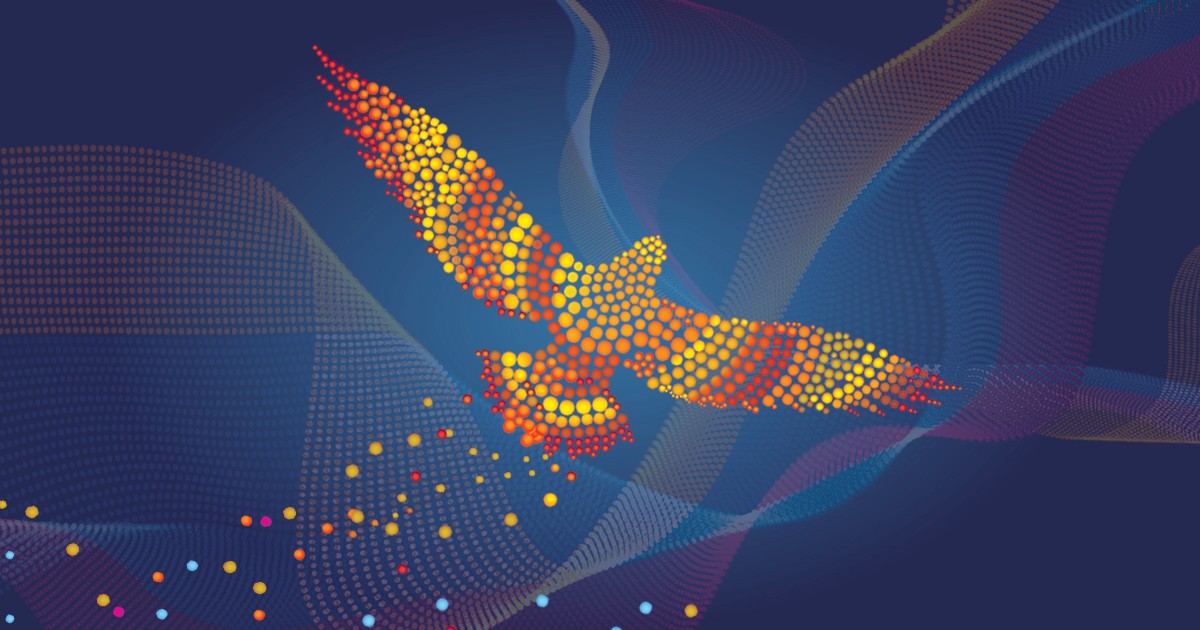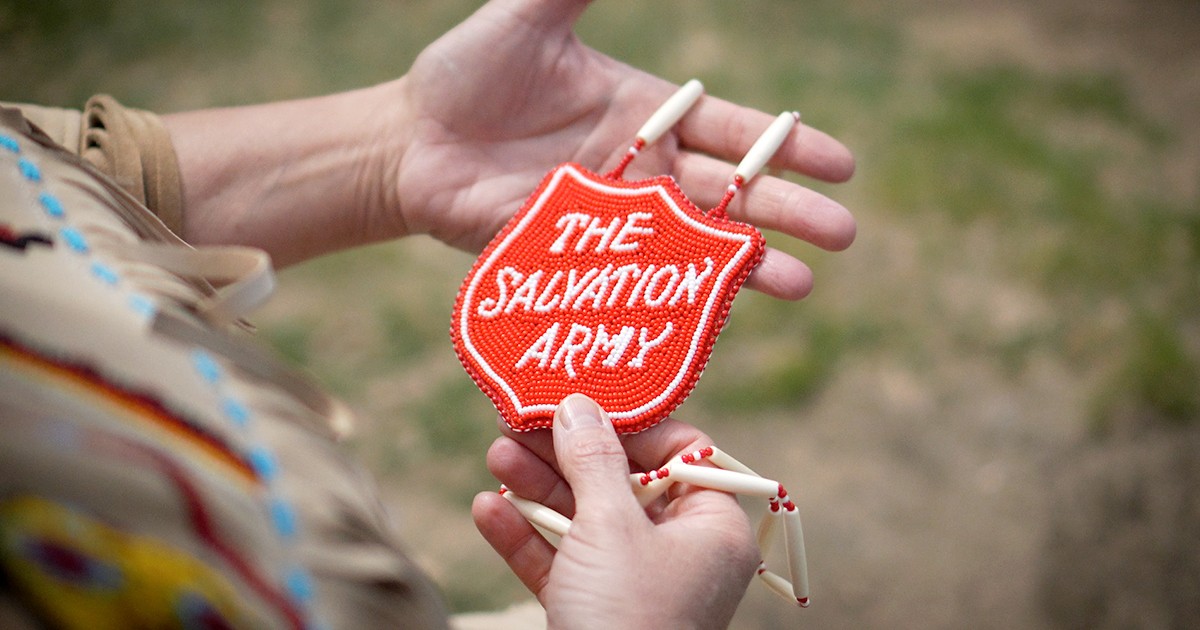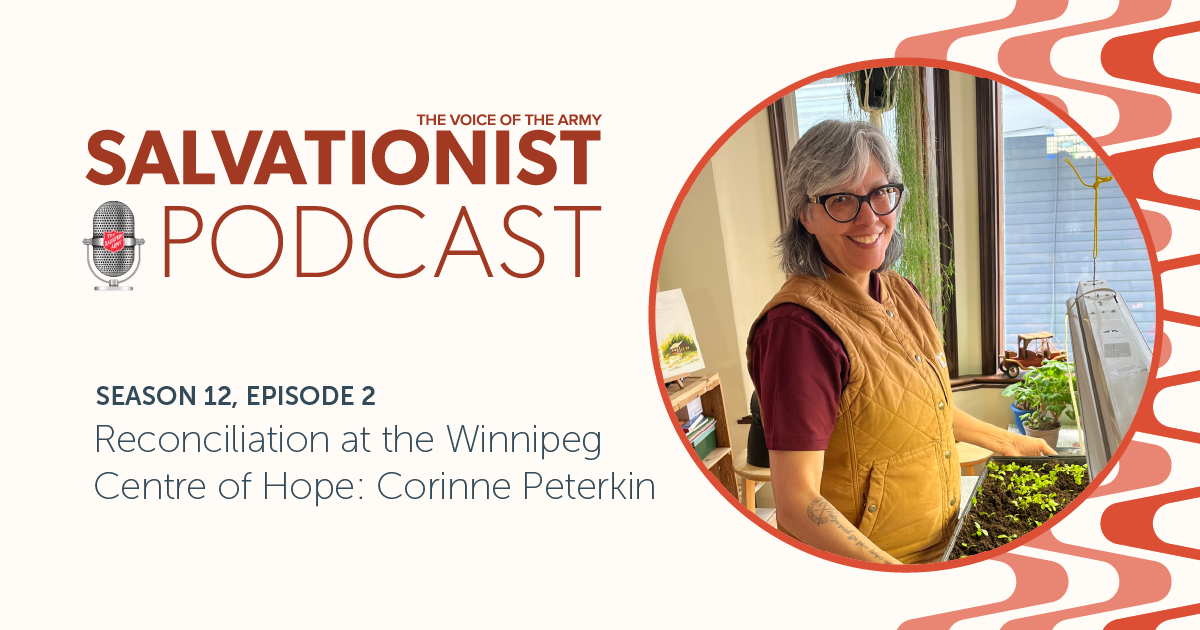This month, The Salvation Army will participate in two important days of remembrance and action: the International Day of Prayer for Victims of Modern Slavery and Human Trafficking (MSHT) on September 22, and the National Day for Truth and Reconciliation on September 30. In this interview with Kristin Ostensen, managing editor, Major Ray Lamont, territorial modern slavery and human trafficking response co-ordinator, and Captain Crystal Porter, territorial Indigenous ministries consultant, talk about why Indigenous people are more vulnerable to MSHT, how the Army is fighting MSHT in our territory, and how Salvationists can prioritize MSHT response work and reconciliation year round.
What does MSHT look like in Canada?
Major Ray Lamont: It takes a wide variety of forms. For example, it could be the woman who gets into a romantic relationship, and everything’s great at the beginning, and then the switch is flipped and the romantic partner is putting them in a situation where they’re being sexually exploited. It could be somebody coming to Canada legally through our temporary foreign workers program, and they end up in a labour exploitation situation because they don’t have protection in our country. It could be a child who meets somebody online who grooms them to create a labour or a sexual exploitation situation. No matter where we live, it’s all around us.
Research shows that more than half of the people who are trafficked in Canada are Indigenous—a staggering statistic. Why is that the case?
Captain Crystal Porter: When we talk about the exploitation and trafficking of Indigenous women and girls, it’s essential to talk about the historical and ongoing impacts of colonization. Since early colonization, Indigenous women and their bodies have been viewed as less valuable than non-Indigenous bodies. This idea disrupted traditional roles within our communities. We value and hold much respect for our matriarchs—many of our communities are matrilineal, meaning that our clans and our family connections are passed through the mother. Women are leaders, healers, nurturers, teachers and decision-makers.
But these ways of leading were dismissed as they did not align with Eurocentric society. Assimilation policies such as the Indian Act reinforced the idea that Indigenous women were less than or unworthy or unimportant, and that belief continues to exist in society today
This legacy has forced Indigenous women and girls into dangerous social and economic conditions, which in turn have made them more vulnerable to violence. Traffickers have been able to take advantage of these conditions to exploit Indigenous women and girls.
IT’S EASY FOR US TO GET INTO THIS TRAUMA MINDSET, BUT IT’S IMPORTANT FOR US TO REVERSE THAT VIEW AND SEE THE HEALING WORK THAT’S HAPPENING WITHIN INDIGENOUS COMMUNITIES.—CAPTAIN CRYSTAL PORTER
There has been more focus on this violence with the recent National Inquiry into Missing and Murdered Indigenous Women and Girls (MMIWG). What did we learn from this inquiry?
CP: It shows us that solutions must come with real partnerships with Indigenous Peoples that support self-determination in a decolonizing way. It’s asking us to look at it from a different perspective and then walk together in a different way.
I remember sitting with an elder once, and he talked about how we need to talk about Indigenous brilliance as much as we talk about Indigenous trauma. And sometimes when we look at Canadian history, it’s easy for us to get into this trauma mindset, but it’s important for us to reverse that view and see the healing work that’s happening within Indigenous communities.
How is our territory responding to MSHT, especially in relation to Indigenous Peoples? And how does this work support our broader reconciliation journey?
RL: We have our territorial Fight for Freedom strategy, which has four parts: awareness and training; prevention and outreach; survivor services and recovery; and partnership and advocacy. We want every person in our territory to understand MSHT so they can be part of the solution to end it. The Salvation Army is strategically positioned in communities across Canada and Bermuda to help prevent it from happening, connecting with people through our thrift stores, community and family services, churches, and more. And we have support services for people as they exit situations of MSHT, to help them journey toward well-being. We also want to advocate for change in our country and our organization, and do that collaboratively. That means working with other organizations and Indigenous communities as they speak into what needs to happen to see MSHT ended. So, we’re working to connect with Indigenous people at all these levels— to support, to advocate, to amplify, to bring change.
CP: Each reconciliation journey looks a bit different, and there’s no “right” way for partnering. But for our departments [antiMSHT and Indigenous ministries]—we’re so thankful to find various ways to work together and collaborate on different projects, whether it’s consulting on video series or speaking about the MMIWG crisis in Parliament. We’re also seeing more happening at the ministry unit level. We’ve seen thrift stores set up red dress displays with the MMIWG Calls for Justice, and we’ve seen other ministries partner with Indigenous organizations to provide ribbon skirts for a local community march. Again, there isn’t a one-size-fits-all response. We are in different stages of reconciliation work. But what’s most important is taking the time to develop relationships.
Why does The Salvation Army set aside a day each year to pray for victims of human trafficking?
RL: As a global organization, we’re deeply committed to fighting MSHT. We have a theological and historical mandate. We believe prayer is foundational—it’s an essential tool to fight for freedom and work toward a world free from exploitation. And so, the day of prayer provides an important focal point for prayer to support people experiencing MSHT, to amplify their voices and corporately cry out for justice. The National Day for Truth and Reconciliation, also known as Orange Shirt Day, is a relatively new day of observance. How can we participate in this day?
CP: Find out what’s happening in your community. Are there powwows or other gatherings happening? Are there online events you can attend that support your local Indigenous community? As a new initiative, The Salvation Army has designated September 29 as Truth and Reconciliation Sunday, so there are resources available on the Indigenous ministries website to help your ministry unit prepare for this Sunday. We’re thankful that the Army has recognized this as an important date for us to honour in our Sunday services.
While it’s important to participate in days such as these, what can we do on an ongoing basis, so that it’s not just a once-a-year thing?
RL: There are many ways people can engage in the fight to end MSHT. The first is learning more. We have an introduction to MSHT certificate, available in English and French. Once you complete that, we have our deep and wide training platform to equip people and help them go deeper into this topic. All this training is selfpaced and available for free on our website. We also have monthly webinars on specific topics. And I would encourage people to download our global toolkit, which provides practical examples of how to get involved. These are things that you could do with your ministry unit, women’s group, men’s group or youth group.
CP: We have a brand-new Indigenous ministries website, where you can find resources, book recommendations and more. The Truth and Reconciliation Commission explained that reconciliation will take many heads, many hands and many hearts, working together at all levels of society to maintain momentum in the years ahead. Reconciliation work is a journey. It takes intentionality and relationship. It’s learning to walk together in a new way.
Listen to the full interview with Major Lamont and Captain Porter on the Salvationist podcast: salvationist.ca/podcast or here:
Learn more about MSHT and find resources for the day of prayer: salvationist.ca/trafficking
Join the Army’s reconciliation journey and find resources for Reconciliation Sunday: salvationist.ca/indigenousministries
This story is from:










Thank you for your help and support.